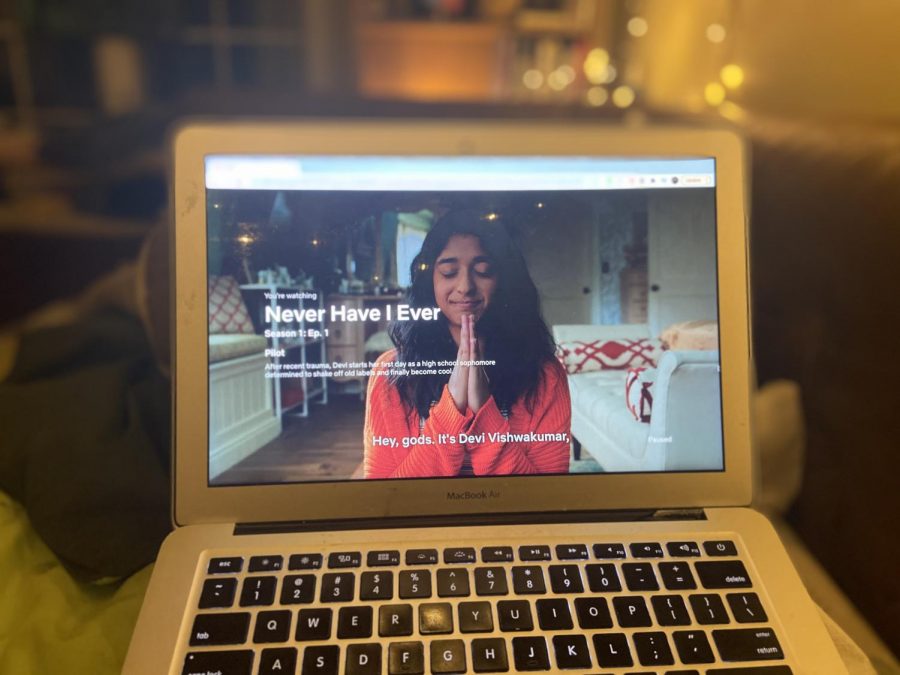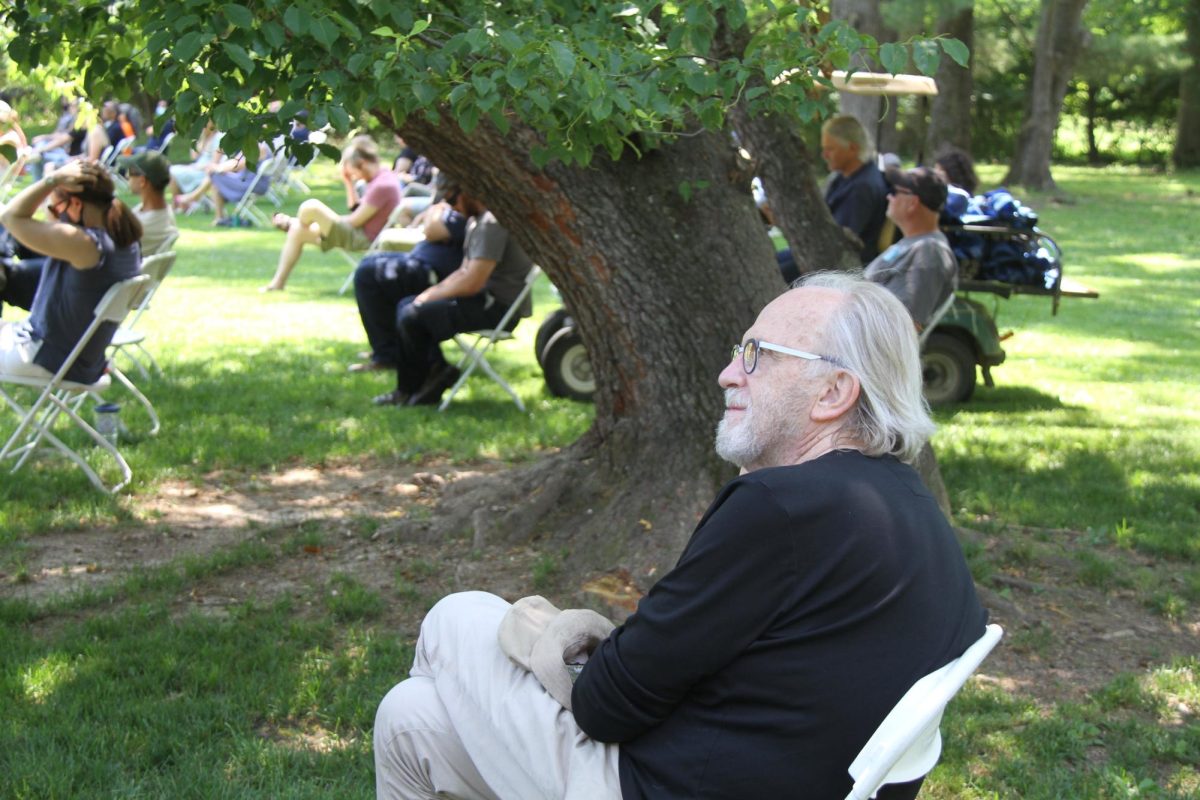Is the New Netflix Show “Never Have I Ever” Harmful or Helpful to the Indian-American Community?
May 13, 2020
The new Netflix original series, Never I Have I Ever, directed by Mindy Kaling, was the number one trending television series on Netflix for several days. The main character, high school sophomore Devi Vishwakumar, is an Indian-American teen yearning for a stereotypical American teenage experience. Devi struggles with embracing her Indian heritage and balancing it with her American lifestyle. Her story resonates with many South Asian women today as the feeling of living in two separate worlds can be overwhelming. While some argue that Devi’s character was too whitewashed or not realistic, I would argue that it is very common for second-generation children in the United States to feel lost throughout their teenage years. Sophomore Dhruti Raghuraman said, “ I have never seen a Tamil and South Indian teenager on an American show not portrayed as a stereotypical Indian. I definitely felt represented, and I think this a big step in South Asian representation in the media today.” Not only does this show explain the untold struggles South Asians face in today’s society, but it conveys to young South Asian women that they can also make it in the American film industry.
While the show was a big hit, some are concerned with the message it is giving to the global community. The show displays intensely stereotypical characteristics of Indian families. While such scenes are humorous, they are not an accurate representation of South Asian families in the United States today. For example, in one episode, Devi attended Ganesh Puja, a religious day for many Hindus. In these scenes, the show ridiculed Indian mothers, presenting them as insensitive, snoopy, and patronizing women. While this is a common joke to make within the Indian community, it is crucial to make sure the wrong message isn’t sent internationally. Another concern that has been brought up is the lack of character development for Devi Vishnukumar. Sophomore Sanjana Paramesh quoted that “while the whole ‘whitewashed Indian girl’ is a real type of person, Devi doesn’t really end up accepting her culture towards the end of the season. I feel like there is no problem in having stereotypes in the show as long as there is enough development that puts the stereotypes to rest.” South Asians already have less representation to begin with, so the representation that we do get holds even more importance. Television producers must understand that sentiment while creating shows like Never Have I Ever. Nonetheless, the program still does an outstanding job and is definitely a must-watch. I am hoping to see Devi’s character develop in upcoming seasons.
I am very grateful to Mindy Kaling for producing a show that South Asian women can relate to. Growing up, I didn’t see many people that look like me on TV. The fact that this show was number one trending on Netflix inspires me to embrace my culture to its fullest. So, I recommend you get your popcorn, sit back, and relax, because watching Never Have I Ever will take you through the wholesome adventure of an average South Asian girl’s life. While this might not be your typical Netflix original, it is definitely worth the watch.






